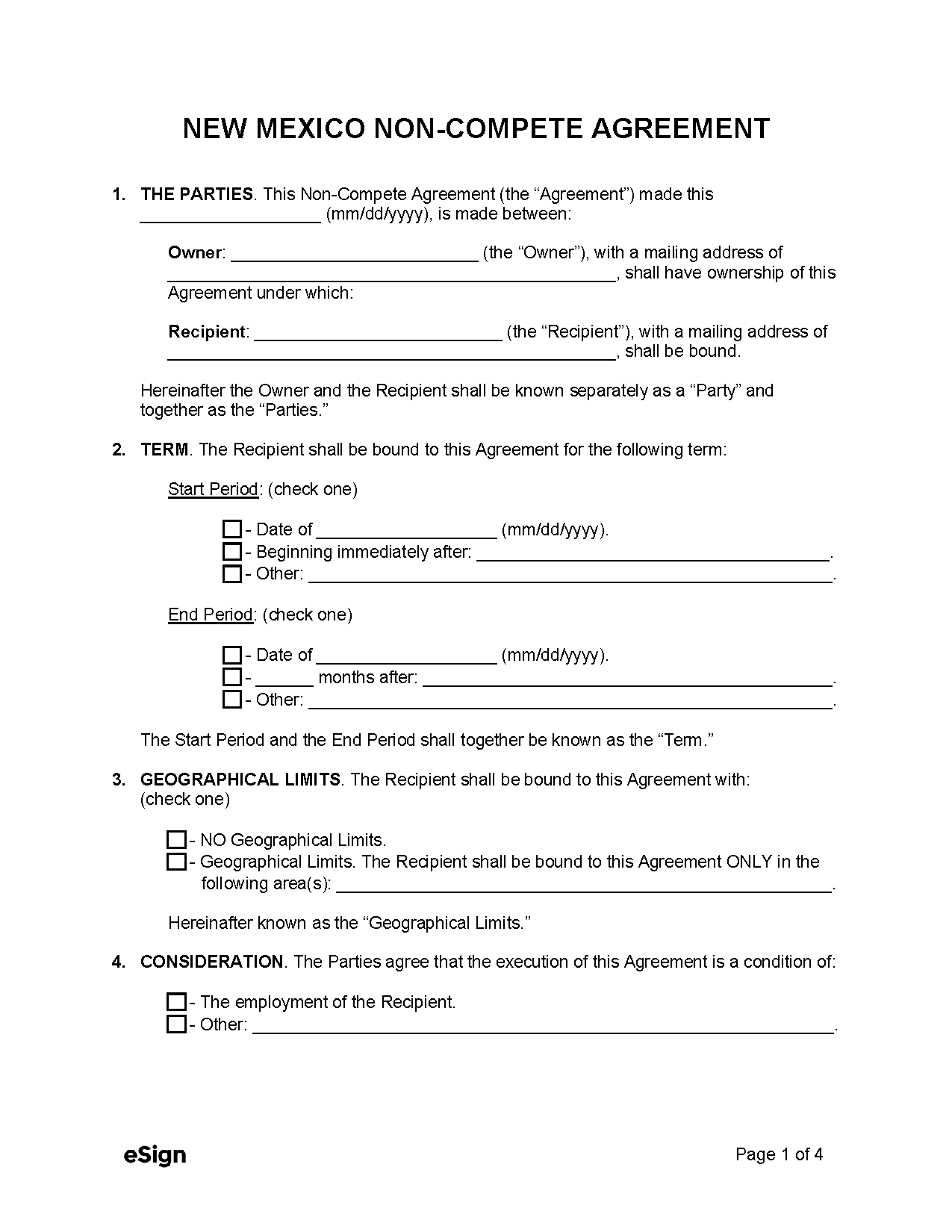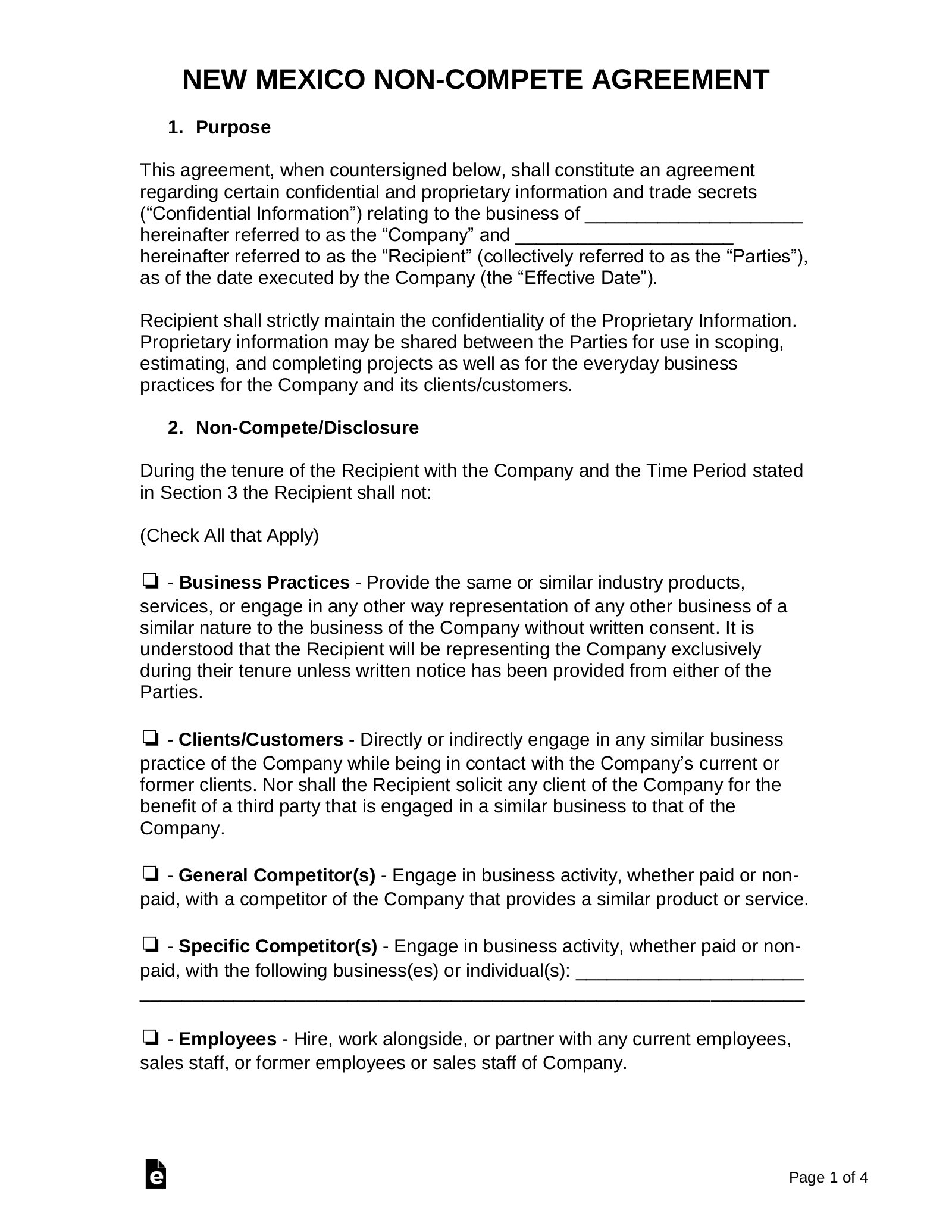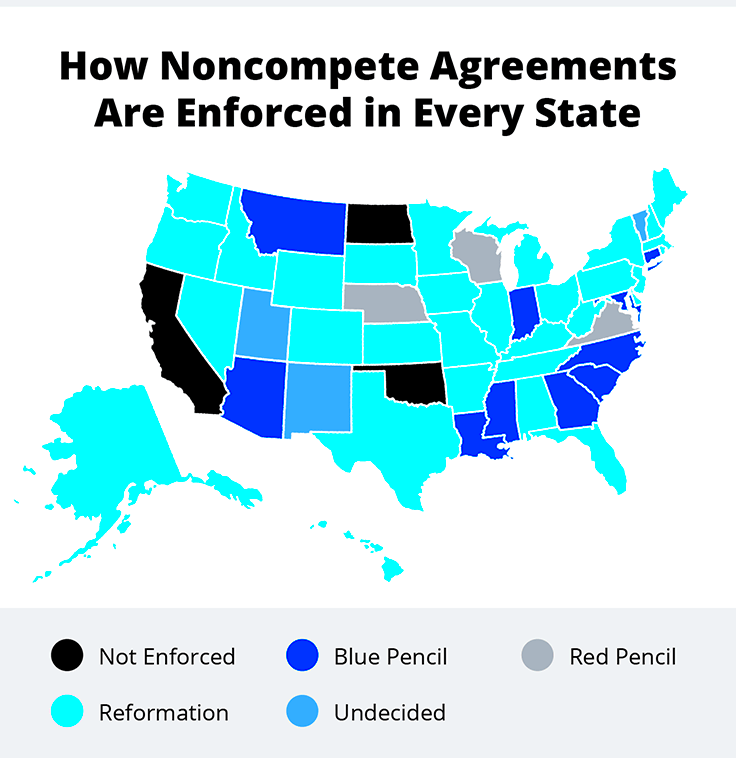New Mexico Non Compete Law Explained
New Mexico’s non compete law is essential for both employers and employees to understand. It addresses how businesses can protect their interests while ensuring that workers have the freedom to seek employment opportunities. Navigating these laws can be tricky, but knowing the basics helps everyone make informed decisions. In this post, we will explore what non compete agreements are, their key features, and how they operate in New Mexico.
Definition of Non Compete Agreements

A non compete agreement is a contract between an employer and employee that restricts the employee from working in a similar profession or industry for a specified period after leaving the company. The goal is to prevent former employees from taking sensitive information, skills, or relationships to competitors.
Key points to understand include:
- Purpose: To protect trade secrets and business interests.
- Duration: The length of time an employee is restricted.
- Geographic Scope: The areas where the restrictions apply.
These agreements can vary widely in their terms and enforceability, depending on state laws and specific circumstances.
Key Features of Non Compete Laws in New Mexico

New Mexico’s non compete laws have unique characteristics that differentiate them from other states. Here are some key features:
- Reasonableness: Non compete agreements must be reasonable in duration, geographic scope, and the activities they restrict. Courts often evaluate whether the terms protect legitimate business interests.
- Consideration: There must be a legitimate reason or compensation for the non compete to be enforceable. This could be a job offer, a promotion, or access to sensitive information.
- Limitations on Duration: New Mexico does not have strict laws on duration, but agreements that are too lengthy may be challenged in court.
- Judicial Scrutiny: Courts in New Mexico are willing to modify or invalidate overly restrictive agreements, favoring fairness for employees.
Understanding these features is crucial for both employers drafting agreements and employees signing them. It ensures that the agreements are fair and legally enforceable.
Enforceability of Non Compete Agreements
The enforceability of non compete agreements in New Mexico can be a bit complex. Generally, for these agreements to be enforceable, they must meet certain criteria. Courts will evaluate various factors to determine if an agreement is reasonable and fair.
Here are some key points regarding enforceability:
- Reasonableness: The agreement must be reasonable in scope, duration, and geographic area. If it’s too broad, a court may refuse to enforce it.
- Legitimate Business Interest: Employers must demonstrate a legitimate interest in protecting their business, such as trade secrets or customer relationships.
- Public Policy: Agreements that are overly restrictive and prevent an individual from earning a living may be deemed unenforceable as they contradict public policy.
In summary, while non compete agreements can be enforced, they must be carefully crafted to avoid common pitfalls. If you find yourself bound by one of these agreements, understanding its enforceability is crucial for your next steps.
Limitations Imposed by New Mexico Non Compete Law
New Mexico imposes certain limitations on non compete agreements to protect employees and promote fair competition. Knowing these limitations can help you navigate any agreements you might encounter.
Here are the primary limitations:
- Time Limit: Non compete agreements should not extend for an unreasonable duration. While New Mexico does not have a strict timeline, most agreements are expected to be within a year or two.
- Geographic Scope: The geographical area covered by the agreement must be reasonable. Restrictions that cover an entire state or country may not hold up in court.
- Activities Restricted: The activities restricted by the agreement should be directly related to the employer’s legitimate business interests.
Understanding these limitations helps employees and employers alike to draft fair agreements that can withstand legal scrutiny.
Legal Consequences of Violating Non Compete Agreements
Violating a non compete agreement can lead to serious legal consequences. If an employee breaches the terms of the agreement, they may face various repercussions, including:
- Injunctions: Employers may seek a court order to prevent the employee from working for a competitor or engaging in certain activities.
- Monetary Damages: Employees might be required to pay damages to the employer, which could include lost profits and legal fees.
- Reputational Harm: Violating a non compete can also damage an employee’s reputation within their industry, making it harder to find future employment.
It’s essential for employees to fully understand their non compete agreements and the potential consequences of violating them. Legal counsel can provide valuable guidance if you find yourself in a situation involving a non compete violation.
How to Navigate Non Compete Agreements in New Mexico
Navigating non compete agreements in New Mexico doesn’t have to be overwhelming. Whether you’re an employer looking to protect your business or an employee trying to understand your rights, knowing how to approach these agreements is crucial. Here are some practical steps to guide you:
- Read Carefully: Always read the non compete agreement thoroughly before signing. Look for the duration, geographic scope, and specific activities restricted.
- Seek Legal Advice: If you’re unsure about any terms, consider consulting an attorney who specializes in employment law. They can clarify any confusing language and inform you of your rights.
- Negotiate Terms: Don’t hesitate to negotiate the terms of the agreement. You can ask for a shorter duration or a smaller geographic area to ensure the agreement is reasonable.
- Document Everything: Keep a record of all communications regarding the agreement. This includes emails, notes from meetings, and any other relevant information.
- Understand Your Rights: Familiarize yourself with New Mexico’s specific laws on non compete agreements. This will help you identify any potentially unfair clauses.
By following these steps, you can confidently navigate non compete agreements and protect your interests, whether as an employee or employer.
Frequently Asked Questions about New Mexico Non Compete Law
Here are some common questions people have about non compete agreements in New Mexico:
- Are non compete agreements legal in New Mexico? Yes, non compete agreements are legal, but they must meet certain criteria to be enforceable.
- How long can a non compete agreement last? There is no strict time limit, but agreements should be reasonable, typically not longer than one to two years.
- Can I negotiate my non compete agreement? Yes, you can negotiate terms to make them more favorable, such as reducing the duration or geographic scope.
- What happens if I violate a non compete agreement? You could face legal consequences, including injunctions and monetary damages.
These questions help clarify the complexities of non compete agreements and empower you to make informed decisions.
Conclusion on New Mexico Non Compete Law
Understanding New Mexico’s non compete law is vital for both employers and employees. These agreements play a significant role in protecting business interests while balancing the rights of individuals. By knowing the enforceability, limitations, and potential consequences, you can navigate these agreements more effectively.
Whether you’re considering signing a non compete or drafting one for your business, remember the importance of clarity and reasonableness in these agreements. Taking the time to read, negotiate, and seek legal advice can save you from future complications.
In conclusion, being informed about New Mexico’s non compete laws can lead to healthier employer-employee relationships and a more transparent understanding of professional obligations.


